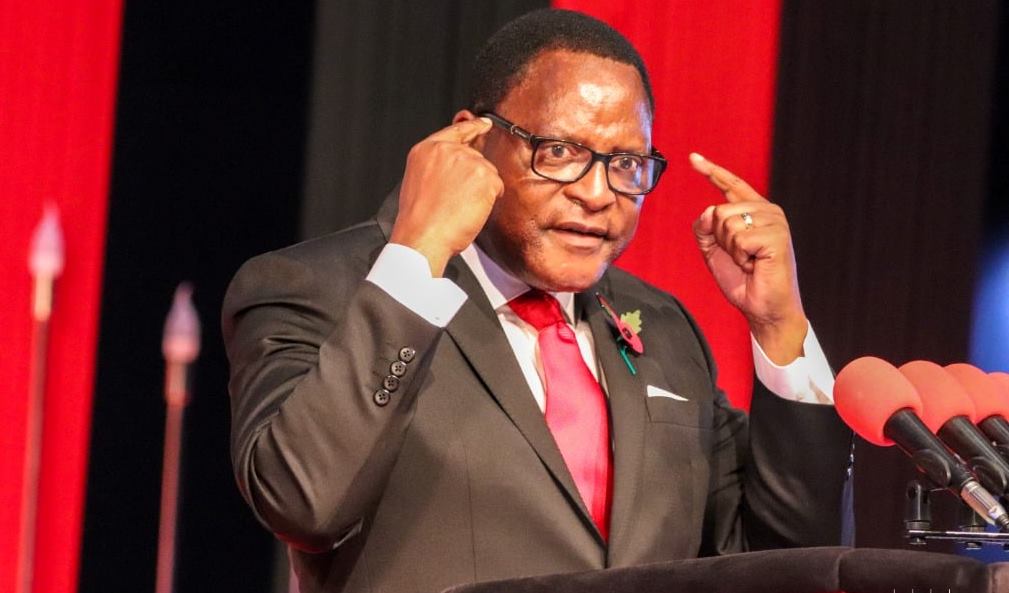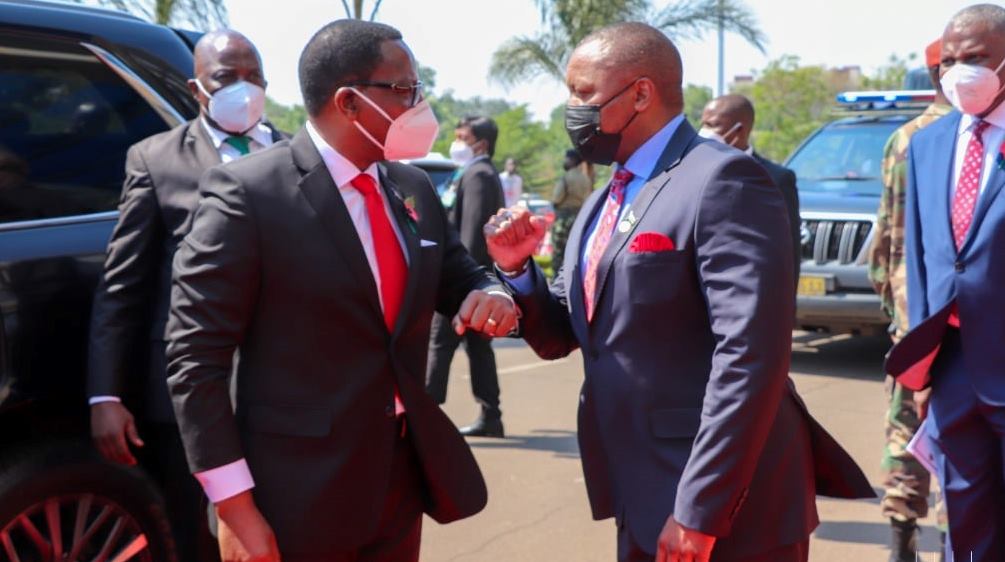No time to waste, says Chakwera
President Lazarus Chakwera on Monday launched the Malawi 2063 (MW2063) first 10-year implementation plan with a call to every Malawian to “get busy” and waste no time to take the country forward.
The plan, estimated to cost $15 billion (about K12 trillion), outlines priority strategies and interventions to be implemented in the next 10 years to set Malawi on a path to actualise MW2063, the country’s long-term development strategy.

It also identifies ‘quick wins’ which are interventions already in the pipeline or have low-cost implications or just require scaling-up in the next five years.
The 210-page document also targets a per capita income of $1 000 (about K825 000) by 2030. Currently, Malawi’s per-capita income, which is derived by dividing national income by population, is ranked one of the lowest in the world at around $600.
MW2063, which was officially launched in January 2021 and replaced Vision 2020, will be rolled out in blocks of 10-year implementation plans.
Speaking during the launch of the document at the Bingu International Convention Centre in Lilongwe, Chakwera took a swipe at “time-wasters” whom he said are bent on derailing government agenda.
Said the President: “If we each focus on doing our part, there will be no time left to waste on silly arguments about politicians on WhatsApp or on gossip in our offices.
“We must each get so busy implementing this plan that anyone wanting to consume our time discussing politicians is considered a time-waster. We cannot afford that. Building a new Malawi is heavy work that demands action from all of us, and there is simply no time to waste.”
Chakwera implored Malawians to pay more attention to civic failures as citizens and take decisive action to correct them as the country implements the plan.
Looking back, Chakwera said expecting so much of politicians and demanding so little of citizens themselves has not helped Malawi for the past 10 years “and it is not going to help us in the next ten years”.
He said: “One of the tragedies in our nation is our tendency to portray education as a ticket to becoming a boss who sits in an office all day having so much done for you while you yourself do so little.

“This is a sickness in the fabric of our workforce and we must cure it. We must cure it by insisting that the most educated in our nation must do the toughest things, work the hardest, and produce the most.”
According to Chakwera, the plan also demands Malawians to diversify and commercialise their agriculture, stressing that “if you do not change what you farm and how you farm, we will not become an inclusively wealthy and self-reliant nation. It’s that simple”.
While describing the K12 trillion cost of implementing the plan over the next decade as realistic, economist Milward Tobias on Monday said there is need for commitment to ensure that available resources finance projects that have proven to have value for money.
He said: “The challenge that continues to haunt us is having a disjointed government. For example, you have the Ministry of Finance working on fiscal consolidation on one hand and you have the Office of the President and Cabinet establishing the Presidential Delivery Unit and Malawi Electoral Commission (MEC) introducing new constituencies on the other hand.
“The latter has an effect of bloating expenditure and directly countering what the former is working to achieve. Same economy and same political administration. It is chaos.”
Speaking earlier, National Planning Commission (NPC) director general Thomas Chataghalala Munthali informed the gathering, which included Vice-President Saulos Chilima, that the development of the MIP-1 involved a series of consultations and validations with various stakeholders due to the multi and cross-sectoral nature of the interventions, projects and programmes to be implemented.
He said the plan also builds on the success and lessons learnt from the Malawi Growth and Development Strategy (MGDS) III whose development had undergone extensive consultation process.
MGDS 111 expires next year and became operational in 2017.
NPC board chairperson Richard Mkandawire urged Malawians to develop a national consciousness that embodies self-help and self-reliance, a narrative which he said promotes more wealth creation and less focus on reproduction of poverty or survival poverty reduction strategies that have made us to continuously rely on handouts and debt for survival.





